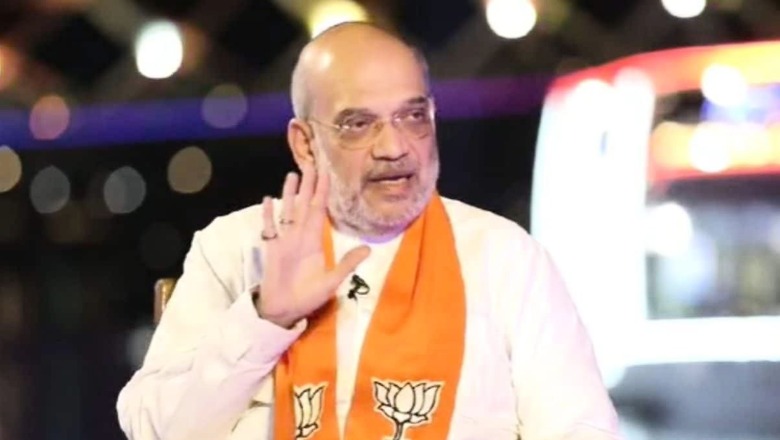
views
Union Home Minister Amit Shah on Monday reassured the public that the three new criminal laws that came into effect would focus on providing justice instead of punishment. Responding to concerns raised by the Opposition over new laws, Shah said India’s criminal justice system is becoming completely ‘Swadeshi’.
Addressing the media at the Parliament Library, he said the reform would help boost the pace of the judicial process. The Bharatiya Nyaya Sanhita (BNS), Bharatiya Nagarik Suraksha Sanhita (BNSS) and the Bharatiya Sakshya Adhiniyam (BSA) take into account some of the current social realities and modern-day crimes. The new laws replaced the British-era IPC, Code of Criminal Procedure and the Indian Evidence Act, respectively.
“I would like to congratulate the people of the country that about 77 years after independence, our criminal justice system is becoming completely ‘Swadeshi’. This will function on Indian ethos. After 75 years, these laws were contemplated upon and when these laws are in effect from today, colonial laws have been scrapped and laws made in the Indian Parliament are being brought into practice,” he said.
#WATCH | Union Home Minister Amit Shah speaks on the three new criminal laws.He says, “…First of all, I would like to congratulate the people of the country that about 77 years after independence, our criminal justice system is becoming completely ‘Swadeshi’. This will… pic.twitter.com/Hg7BJ3GVMC
— ANI (@ANI) July 1, 2024
‘Nyay’ Instead of ‘Dand’
“Instead of ‘Dand’, it is now ‘Nyay’. Instead of delay, there will be speedy trial and speedy justice. Earlier, only the rights of the Police were protected but now, vicitms’ and complainants’ rights will be protected too,” he added. The BJP earlier today said that the new criminal laws are a symbol of India’s progress and resilience, positioning the country for a more just and secure future.
Responding to a question in a press conference, Bharatiya Janata Party (BJP) national spokesperson Gaurav Bhatia said the Indian Penal Code (IPC) and the Indian Evidence Act, originating from 1860 and 1872, respectively, were outdated and ill-equipped to address contemporary issues.
“Today is a historic day in the annals of our free country, India. An evolving society needs laws that cater to its needs and demands, protecting its rights,” he said. Bhatia called the new laws a symbol of India’s progress and resilience, positioning the country for a more just and secure future. Highlighting the comprehensive nature of the new legislation, he underscored several key changes.
“In the earlier laws, terrorism had no definition, making it difficult for the prosecution and the police to file charges or prove a case. The new laws have defined terrorism,” Bhatia said. This clarity, he said will strengthen India’s resolve to eradicate terrorism. Bhatia also emphasised the inclusion of mob lynching as a specific offence with the potential for death penalty. He also pointed out the special focus on the rights of women and children.
“There is a separate chapter for crimes against women and children, ensuring specificity and deterring criminals from committing these crimes,” the BJP spokesperson said. The new laws also aim to expedite the delivery of justice, he added. “A judgment, if reserved in criminal cases, has to be delivered within 45 days,” Bhatia said. He pointed out that this provision addresses delays caused by judicial retirements and reconstitution of benches, ensuring timely justice for all.
Addressing broader societal implications, Bhatia said the new laws are symbolic of the fact that a new, resilient India is ready to embrace laws duly enacted by our legislators. He positioned this legal transformation as part of a larger narrative of national progress and modernisation. Hitting out at the opposition, Bhatia said, “I am sure they have not even read the three laws, just like they hold the Constitution in their hand but don’t care to read it”. He asserted that the entire nation has come forward to embrace and welcome the new criminal laws.




















Comments
0 comment